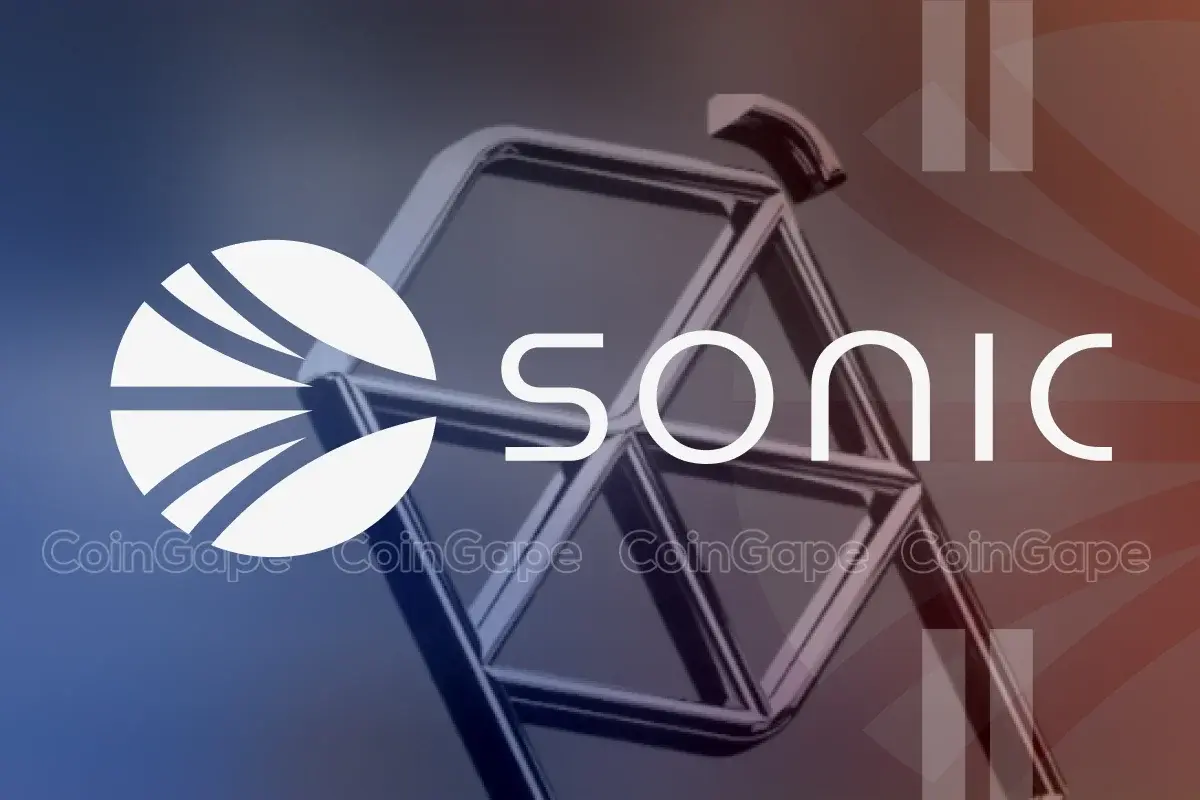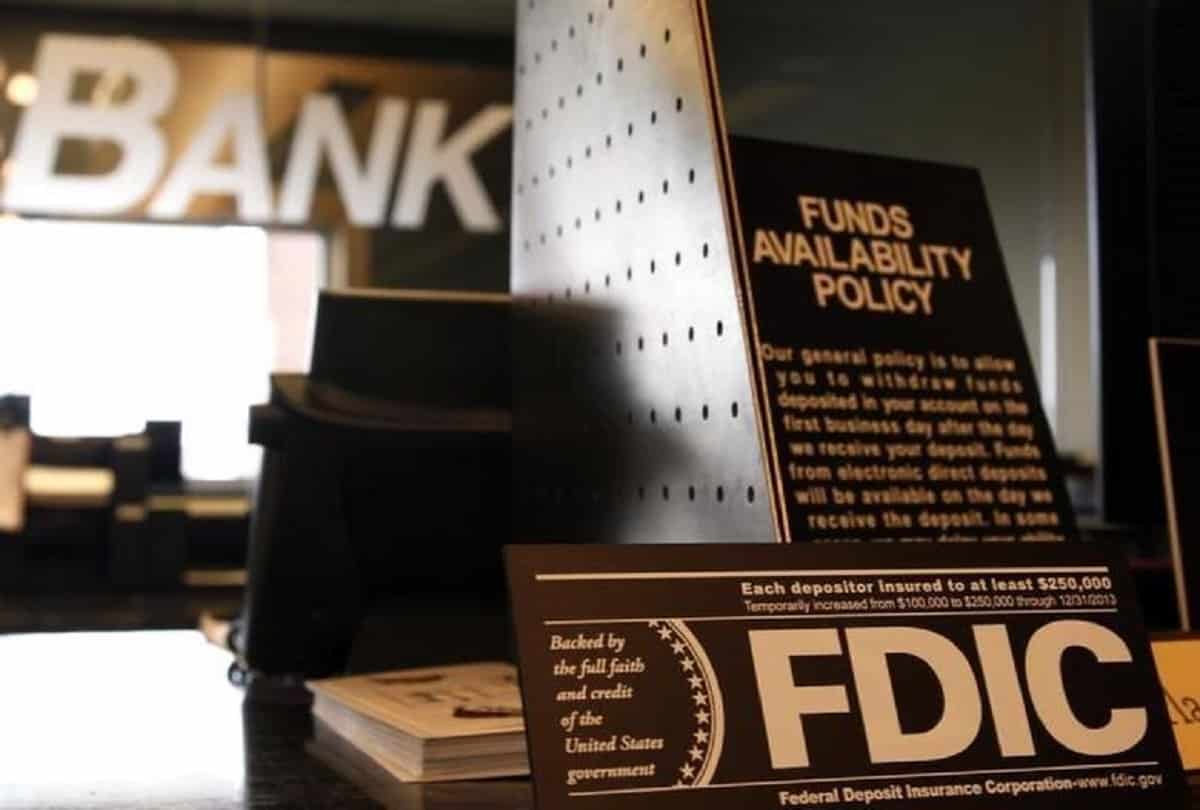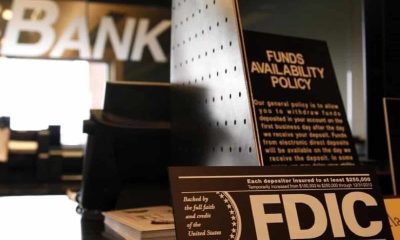Regulation
Is US Fed and SEC Centralizing Crypto Custody? ETF Issuers At Risk

The US Federal Reserve has been going after several crypto-friendly banks looking to offer crypto custody services to several market players. In another such crackdown, the US Fed issued a cease-and-desist order to Dallas-based United Texas Bank citing major “deficiencies” in following the anti-money laundering rules linked to the bank’s dealing with crypto firms.
US Fed Targeting Bank on Crypto Custody Offerings
The recent notice from the US Fed to the United Texas Bank doesn’t specify how it failed to comply with AML regulations while dealing with crypto firms. However, per the order, the bank’s leadership has consented to the notice in order to avoid formal proceedings.
The US Fed has given a 90-day period for the United Texas Bank to submit a comprehensive five-point action plan to meet the AML standards. This notice is the latest example of a crypto-friendly bank coming under scrutiny from U.S. regulatory authorities. Last month, Customers Bank faced similar regulatory attention from U.S. officials. Crypto industry players have started questioning these actions from the regulators.
ANOTHER CRYPTO BANK, ANOTHER ENFORCEMENT ACTION…https://t.co/skSeOAgZZi
— Caitlin Long 🔑⚡️🟠 (@CaitlinLong_) September 4, 2024
Gemini founder Tyler Winklevoss also noted: “When Harris said she wanted to “reset” with the crypto industry, we all assumed for the better. Turns out she meant for the worse”.
While the US Fed has been targeting several crypto custody solution providers, analysts have raised questions about why regulators, including the SEC, are discouraging federally regulated banks from offering custodial solutions. On the other hand, overseas regulators are supporting local banks. A day before, Swiss Bank ZKB announced its trading and crypto custody facility for BTC and ETH.
Crypto ETF Issuers Are At Risk
Amid strong demand for crypto ETFs in the US, hackers have been trying to target their custodial platforms. Recent reports also suggest North Korean hackers targeting Bitcoin ETFs.
ConsenSys lawyer Bill Hughes said: “Crypto ETF issuers better have their security as tight as possible. DPRK is at the door”. Rising further concerns regarding this matter, Fox Business journalist Eleanor Terret said that most of the crypto ETF issuers rely on a single crypto custody provider – Coinbase – for their BTC and ETH holdings.
Thus, Coinbase could be a potential “single point of failure” for the entire market, emphasizing that centralization of crypto custody can be fatal to the entire crypto ecosystem.
It doesn’t bode well that nearly all crypto ETF issuers have the same custodian for all their $BTC and $ETH. This makes @coinbase a potential single point of failure and that’s scary. https://t.co/47RNMQ5dQN
— Eleanor Terrett (@EleanorTerrett) September 4, 2024
Terret also slammed the SEC and US Fed for discouraging federally regulated banks from offering crypto custody services under SAB 121. She argued that such policies reduce the pool of crypto custodians leading to increased centralization and greater vulnerability in the market. Coinbase CLO was quick to respond to Terret’s doubts regarding having Coinbase the major custodian for all ETF issuers.
I think it’s whatever the opposite of scary is. A wide range of the world’s largest and pickiest institutions trust us as the most effective way to keep their clients’ digital assets safe. https://t.co/lL1tEjPv1G https://t.co/jw0Tqgi7td
— paulgrewal.eth (@iampaulgrewal) September 4, 2024
Disclaimer: The presented content may include the personal opinion of the author and is subject to market condition. Do your market research before investing in cryptocurrencies. The author or the publication does not hold any responsibility for your personal financial loss.
Regulation
US SEC Drops Charges Against Hawk Tuah Girl Hailey Welch

Hawk Tuah girl Hailey Welch, known for her association with the controversial $HAWK token, has been cleared of any wrongdoing after a lengthy investigation by the U.S. Securities and Exchange Commission (SEC). The SEC has decided not to press charges against Welch in connection with the rapid rise and subsequent collapse of the meme-based cryptocurrency.
US SEC Investigation Into Hawk Tuah Girl Concludes Without Charges
The SEC had launched an investigation into the $HAWK token after its dramatic price drop. The token, which was linked to Welch’s viral persona, initially saw a market cap surge to $490 million before crashing by over 90%. Investors who were impacted by the crash filed a lawsuit against those behind the project, alleging that the coin had been promoted and sold without proper registration.
Hawk Tuah girl Hailey Welch, who cooperated fully with the investigation, expressed relief after the SEC’s decision. “For the past few months, I’ve been cooperating with all the authorities and attorneys, and finally, that work is complete,” Welch told TMZ.
Her attorney, James Sallah, confirmed that the SEC had closed the case without any findings against her, adding that there would be no monetary sanctions or restrictions on Welch’s future involvement in cryptocurrency or securities.
This Is A Developing News, Please Check Back For More
Disclaimer: The presented content may include the personal opinion of the author and is subject to market condition. Do your market research before investing in cryptocurrencies. The author or the publication does not hold any responsibility for your personal financial loss.
Regulation
Sonic Labs To Abandon Plans For Algorithmic USD Stablecoin, Here’s Why

Barely a week after hinting at launching an algorithmic USD stablecoin, Sonic Labs is shuttering its plans. Sonic Labs co-founder Andre Cronje revealed that incoming stablecoin regulation in the US contributes to the change of stance.
Sonic Labs Makes U-Turn Over Algorithmic USD Stablecoin
In mid-March, Sonic Labs disclosed plans for a yield-generating algorithmic stablecoin for its blockchain. However, new developments in the US regulatory landscape are forcing the company to ditch its algorithmic stablecoin ambitions.
Sonic Labs co-founder Andre Cronje confirmed the change in direction via an X post following the release of the full draft of the STABLE Act by Congress for clearer oversight. According to the text, lawmakers are pushing for a two-year moratorium on algorithmic stablecoin, souring Sonic Labs plans.
Unlike mainstream stablecoins backed by fiat or other commodities, algorithmic stablecoins rely on smart contracts to maintain their peg. The 2022 implosion of Terra’s ecosystem following the de-pegging of its TerraUSD (UST) algorithmic stablecoin stunned regulators.
“We will no longer be releasing a USD-based algorithmic stablecoin,” said Cronje.
In a light-hearted note, community members teased potential strategies for Sonic Labs to sidestep incoming stablecoin regulation. Apart from the loophole of launching the algorithmic stablecoin before the regulation goes live, Cronje teased an algorithmic dirham that will be denominated in USD.
Industry Players Are Bracing For New Stablecoin Regulations
Stablecoin issuers are steeling themselves for incoming stablecoin regulations in the US. While the GENIUS Act and STABLE Act continue to inch forward, there are common denominators in both bills.
For starters, there is the requirement for equivalent reserves at a 1:1 ratio with both bills steering clear of algorithmic stablecoins. The White House is favoring the GENIUS Act over the STABLE Act as lobbyists rally to stifle the possibility of a Conference Committee.
Authorities are targeting stablecoin regulation to reach Trump in two months as issuers jostle for position. Tether, Circle, and Ripple are staking their claims to lead the US government’s ambitions to rely on stablecoins to maintain the dollar’s dominance.
Disclaimer: The presented content may include the personal opinion of the author and is subject to market condition. Do your market research before investing in cryptocurrencies. The author or the publication does not hold any responsibility for your personal financial loss.
Regulation
FDIC Revises Crypto Guidelines Allowing Banks To Enter Digital Assets

The Federal Deposit Insurance Corporation (FDIC) has updated its guidelines, enabling banks to engage in cryptocurrency-related activities without seeking prior approval. This new policy shift signals a change in the FDIC’s approach to the growing role of digital assets in the banking sector.
New FDIC Guidelines on Crypto-Related Activities
The FDIC has issued a new Financial Institution Letter (FIL-7-2025), which provides updated guidance for banks looking to engage in cryptocurrency activities. The new guidance rescinds the previous policy set out in FIL-16-2022, which required banks to notify the FDIC before engaging in such activities.
Under the new rules, banks can now participate in permissible crypto-related activities without waiting for FDIC approval, as long as they manage the risks appropriately.
This change is seen as a shift in the FDIC’s stance, following the agency’s earlier stance that required prior approval for crypto engagements. FDIC Acting Chairman Travis Hill expressed that this new approach aims to establish a more consistent framework for banks to explore and adopt emerging technologies like crypto-assets and blockchain.
“With today’s action, the FDIC is turning the page on the flawed approach of the past three years,” said Hill in a statement.
This Is A Developing News, Please Check Back For More
Disclaimer: The presented content may include the personal opinion of the author and is subject to market condition. Do your market research before investing in cryptocurrencies. The author or the publication does not hold any responsibility for your personal financial loss.
-

 Altcoin20 hours ago
Altcoin20 hours agoDogecoin Price Set To Reach $1 As Once In A Year Buy Opportunity Returns
-

 Market24 hours ago
Market24 hours agoCoinbase to Rival Binance With BNB Perpetual Futures
-

 Market23 hours ago
Market23 hours agoSatLayer CEO Luke Xie Talks Bitcoin Restaking and DeFi’s Future
-

 Altcoin22 hours ago
Altcoin22 hours agoBlessing or Curse for the Crypto Market?
-

 Market22 hours ago
Market22 hours agoHedera Falls 4% as Bears Dominate: What’s Next for HBAR?
-

 Regulation17 hours ago
Regulation17 hours agoFDIC Revises Crypto Guidelines Allowing Banks To Enter Digital Assets
-

 Altcoin21 hours ago
Altcoin21 hours agoWhy the US SEC Is Delaying the Ripple Case?
-

 Ethereum21 hours ago
Ethereum21 hours agoEthereum Fails To Break $2,100 Resistance – Growing Downside Risk?



















✓ Share: